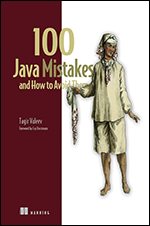Java Programming: Iterative Evaluation
Java
| Intermediate
- 11 videos | 1h 28m 27s
- Includes Assessment
- Earns a Badge
This 11-video course examines the use of loops in Java, where iterative control structures are named for-loops, while loops, and do-while loops. This course opens by studying simple for-loops and introduces the concepts of the check expression, the loop variable, and the UPDATE statement. You will learn how to use enhanced for-loops, popular for iterating over arrays and collections. Participants then explore how to short-circuit a loop by using the break statement, and how to short-circuit the current iteration by using continue. Once a break statement is encountered in a loop, it is automatically terminated and the program control resumes at the next statement following the loop. The course then demonstrates how to do this in the context of for-loops, while loops, and do-while loops. You will learn to identify situations where for-loops are preferable to while loops. Finally, examine the dangers of infinite looping in the context of while looping, and learn to identify common pitfalls that lead to infinite looping and how to avoid these pitfalls.
WHAT YOU WILL LEARN
-
Discover the key concepts covered in this courseUse for loops to iteratively execute a block of codePrematurely terminate loop execution using the break keywordShort-circuit execution of the current loop iteration using the continue keywordEffectively use nested loopsUse enhanced for loops, also known as for-each loops, to iterate over arrays and iterable objects in java
-
Use while loops to control the number of times a block of code executes based on the value of a specific expressionUse multiple loop variables to control the number of iterations in a while loopIdentify common causes of infinite looping, such as incorrect use of the continue keywordUse the do-while loop control structure to ensure that the body of a loop is always executed at least once, regardless of the value of the loop variableSummarize the key concepts covered in this course
IN THIS COURSE
-
2m 12s
-
9m 5sDuring this video, you will learn how to use for loops to execute a block of code multiple times. FREE ACCESS
-
3. The break Keyword9m 41sDuring this video, you will learn how to end loop execution early using the break keyword. FREE ACCESS
-
4. The continue Keyword9m 56sUse the continue keyword to short-circuit execution of the current loop iteration. FREE ACCESS
-
5. Nested Loops10m 9sLearn how to use nested loops effectively. FREE ACCESS
-
6. Enhanced for Loops7m 56sLearn how to use enhanced for loops, also known as for-each loops, to iterate over arrays and iterable objects in Java. FREE ACCESS
-
7. While Loops10m 21sIn this video, you will learn how to use while loops to control the number of times a block of code executes based on the value of a specific expression. FREE ACCESS
-
8. Multiple Loop Variables7m 38sDuring this video, you will learn how to use multiple loop variables to control the number of iterations in a for loop. FREE ACCESS
-
9. Infinite Loops10m 45sDuring this video, you will learn how to identify common causes of infinite looping, such as incorrect use of the continue keyword, and how to fix them. FREE ACCESS
-
10. Do-while Loops9m 35sIn this video, find out how to use the do-while loop control structure to ensure that the body of a loop is always executed at least once, regardless of the value of the loop variable. FREE ACCESS
-
11. Course Summary1m 9sIn this video, we will summarize the key concepts covered in this course. FREE ACCESS
EARN A DIGITAL BADGE WHEN YOU COMPLETE THIS COURSE
Skillsoft is providing you the opportunity to earn a digital badge upon successful completion on some of our courses, which can be shared on any social network or business platform.
Digital badges are yours to keep, forever.






